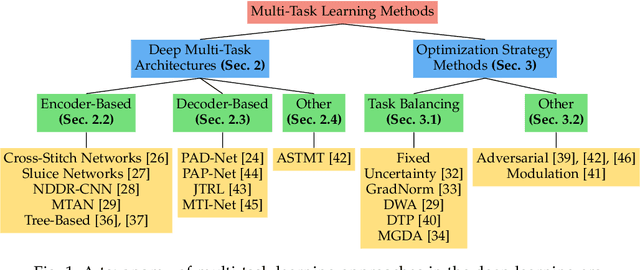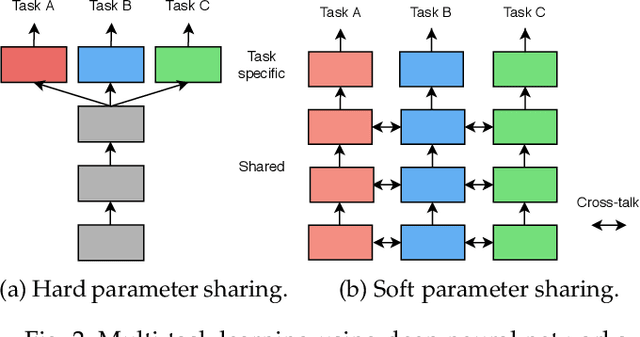Revisiting Multi-Task Learning in the Deep Learning Era
Paper and Code
Apr 28, 2020



Despite the recent progress in deep learning, most approaches still go for a silo-like solution, focusing on learning each task in isolation: training a separate neural network for each individual task. Many real-world problems, however, call for a multi-modal approach and, therefore, for multi-tasking models. Multi-task learning (MTL) aims to leverage useful information across tasks to improve the generalization capability of a model. In this survey, we provide a well-rounded view on state-of-the-art MTL techniques within the context of deep neural networks. Our contributions concern the following. First, we consider MTL from a network architecture point-of-view. We include an extensive overview and discuss the advantages/disadvantages of recent popular MTL models. Second, we examine various optimization methods to tackle the joint learning of multiple tasks. We summarize the qualitative elements of these works and explore their commonalities and differences. Finally, we provide an extensive experimental evaluation across a variety of datasets to examine the pros and cons of different methods, including both architectural and optimization based strategies.
 Add to Chrome
Add to Chrome Add to Firefox
Add to Firefox Add to Edge
Add to Edge